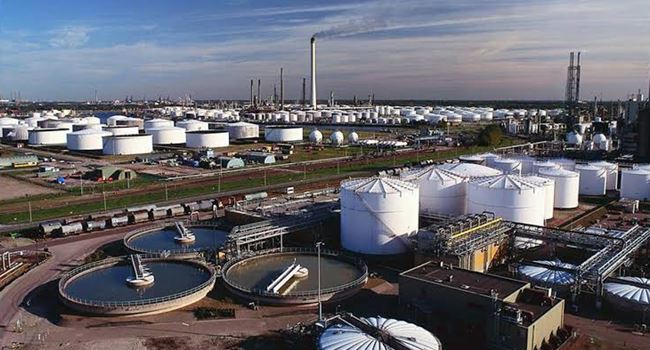Business
Oil prices fall as rise in COVID-19 cases threatens demand, Bonny Light gains $0.71

Oil prices dropped from nine-month highs on Friday, with escalating coronavirus infections viewed as a threat to near-term fuel demand and a stronger U.S. dollar also having a depressing effect on oil prices.
Brent crude futures dipped by 20 cents or 0.39% to $51.30 per barrel at 08:57 West Africa Time, while U.S. West Texas Intermediate (WTI) was down by 14 cents or 0.29% to $48.22.
Bonny Light, Nigeria’s premium oil grade, advanced by $0.71 or 1.41% to $51.01 on Thursday, while Qua Iboe, another key national oil grade, appreciated by $1.15 or 2.27% $51.77.
Over 73.65 million are officially said to be infected by the coronavirus around the world and 1,654,920 have died, going by a Reuters tally on Friday.
The upsurge in cases is causing tough restrictions on travel, impacting fuel demand and any economic rebound while supressing oil prices.
There was a greater proof the world’s biggest economic recovery from the pandemic recession was falling as statistics indicated that the number of Americans filing first-time claims for unemployment benefits suddenly increased last week.
Both Brent and WTI rose on Thursday, on hopes surrounding progress on a COVID-19 stimulus package, strong Asian refining demand and a dive in the dollar to a two-and-a-half year low.
With oil prices denominated in dollars, a rise in the U.S. currency on Friday made oil costlier for buyers holding other currencies.
Read also: Oil prices jump to 9-month high after inventory, Bonny Light sheds $0.15
The prospects of (a) stimulus deal and vaccine rollout have largely been digested by market participants and thus been more or less priced in, rendering (the) oil prices vulnerable to a pullback when profit taking kicks in,” said Margaret Yang, strategist at DailyFX.
ANZ Research stated that with coronavirus cases touching fresh daily records, and curbs tightening in Japan, pressure is mounting on the Organisation of the Petroleum Exporting Countries (OPEC), Russia and allies, a grouping called OPEC+.
OPEC+ intends to add half a million barrels per day (bpd) of supply in January, a step towards a 2million bpd target.
“While OPEC+ has shown it’s ready and willing to adapt to evolving market conditions, which should protect crudes value in the longer term, near-term challenges may still weigh on recent bullish momentum,” said OANDA analyst Craig Erlam in a note.
Join the conversation
Support Ripples Nigeria, hold up solutions journalism
Balanced, fearless journalism driven by data comes at huge financial costs.
As a media platform, we hold leadership accountable and will not trade the right to press freedom and free speech for a piece of cake.
If you like what we do, and are ready to uphold solutions journalism, kindly donate to the Ripples Nigeria cause.
Your support would help to ensure that citizens and institutions continue to have free access to credible and reliable information for societal development.






















